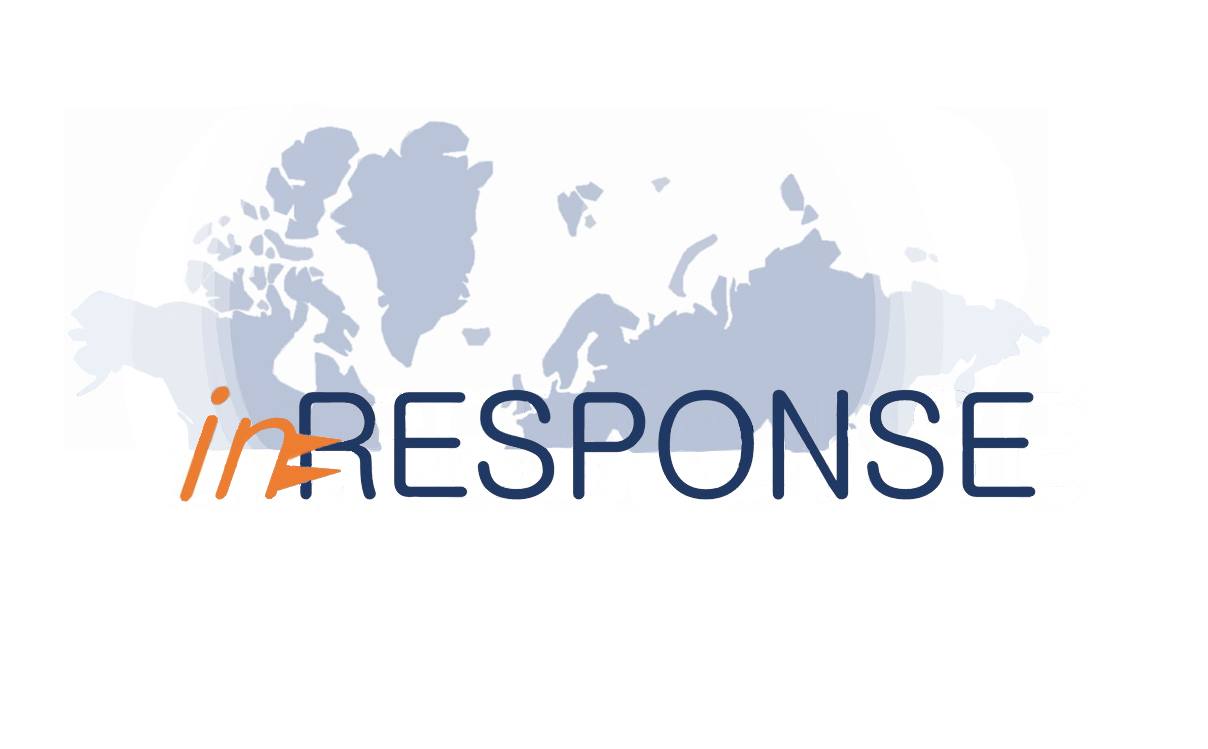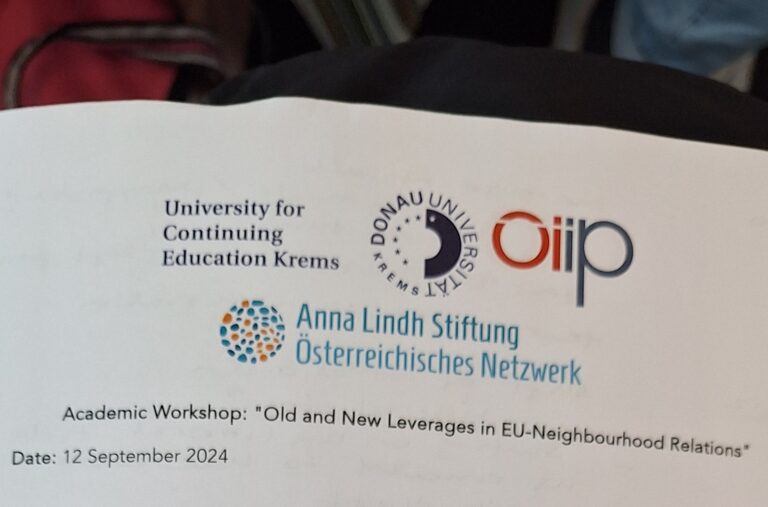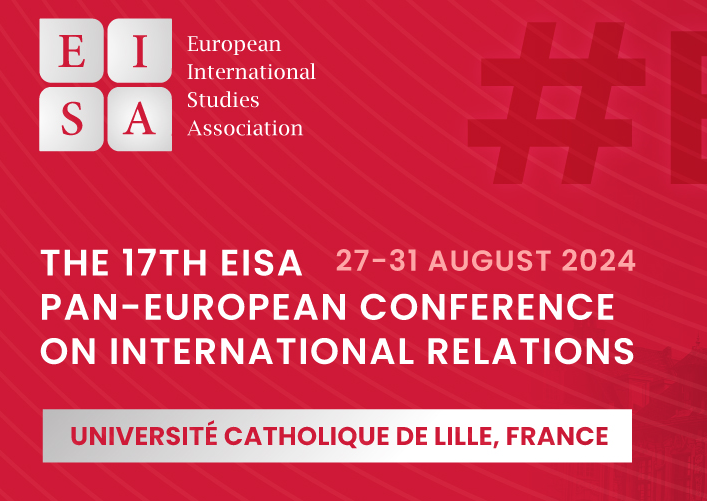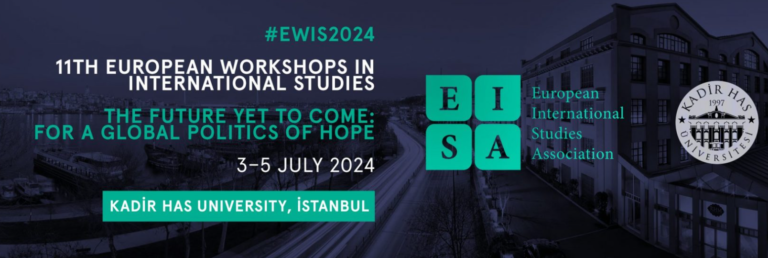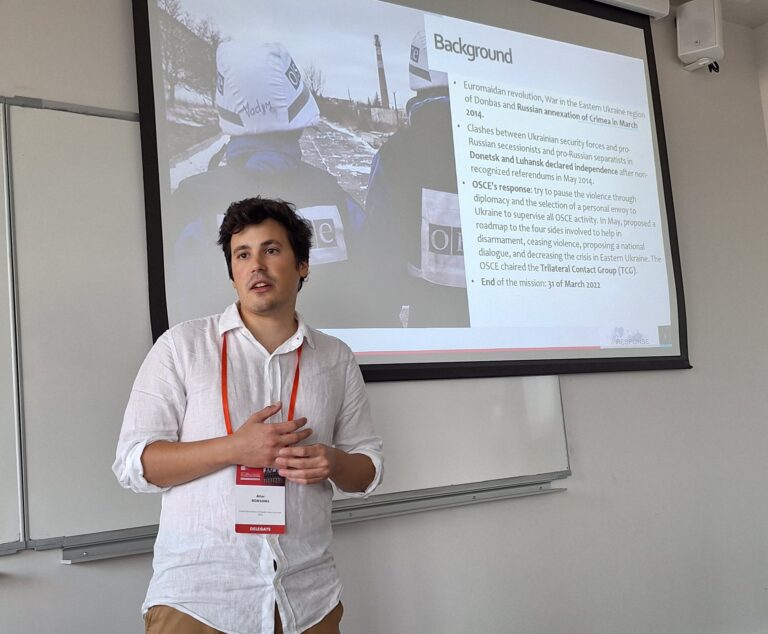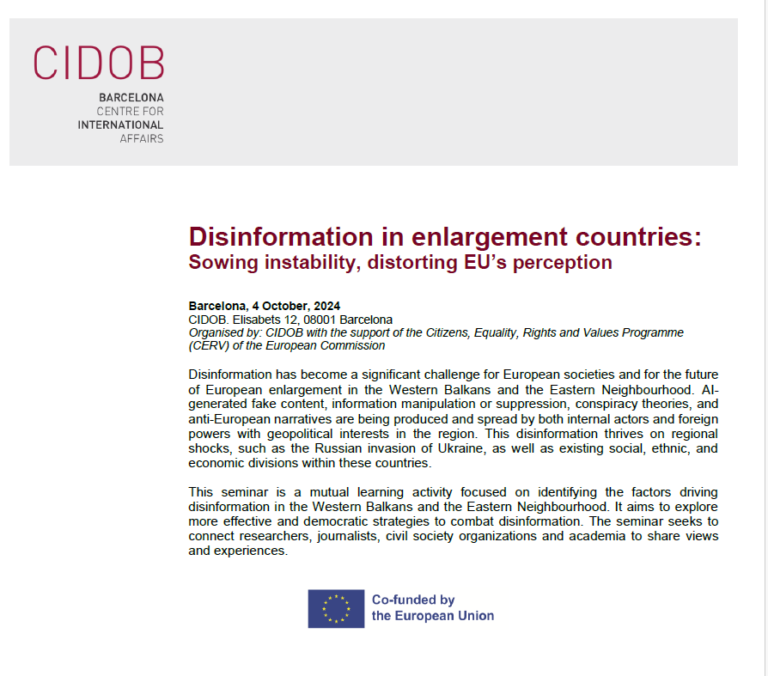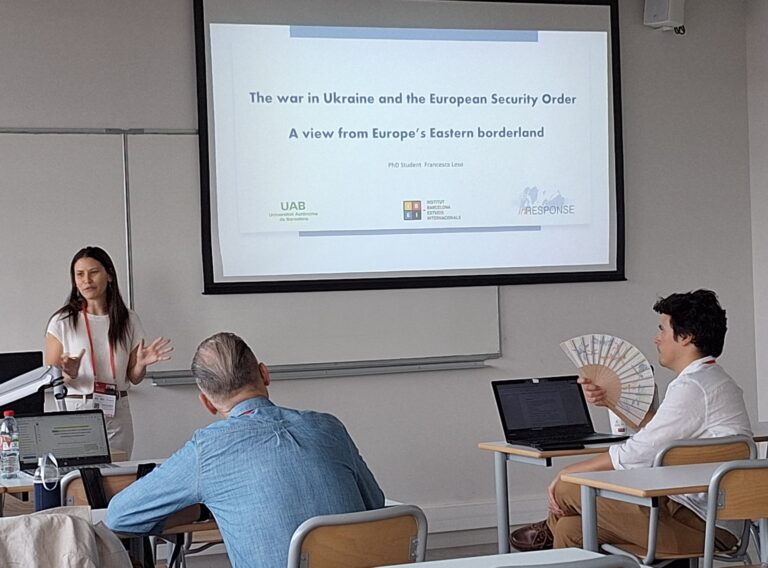January 2024: Workshop on Geopolitical Dynamics in the Digital Age: Navigating Cybersecurity and Disinformation Challenges
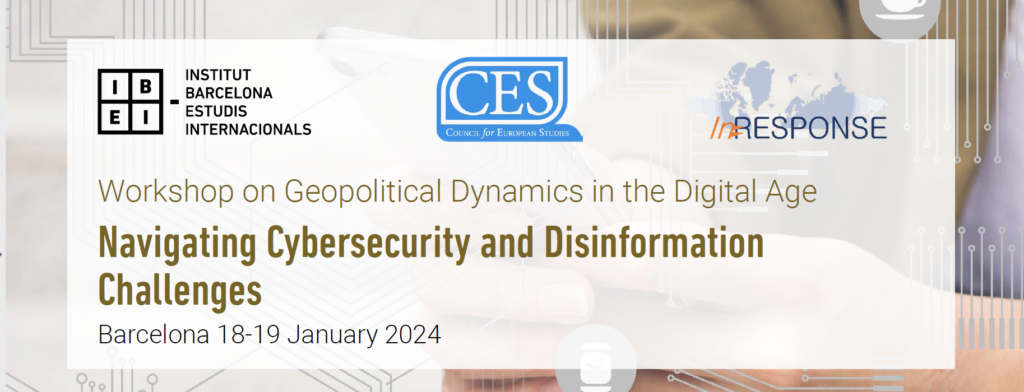
The Institut Barcelona d’Estudis Internacionals (IBEI) and the Council for European Studies (CES) will jointly organize the Workshop on Geopolitical Dynamics in the Digital Age: Navigating Cybersecurity and Disinformation Challenges, scheduled for 18-19 January 2024 to be held at IBEI, Barcelona.
The objective of the workshop is to address the pressing issues surrounding cybersecurity and disinformation challenges that have emerged in the modern digital landscape. Cyber threats and disinformation campaigns, no longer mere acts of isolated hackers or propagandists, have evolved into foreign policy tools used by certain states, notably China and Russia, to intervene in Western democracies and/or commercial entities. Understanding the geopolitical dynamics that shape these threats and the institutional responses required to mitigate them has become a challenge of paramount importance for European security.
The Workshop will cover four panels aimed to focus on the main state actors propagating cyber insecurity and disinformation, specifically China and Russia, to identify trends and new frontiers in cyber and disinformation activities; institutional responses to such hybrid interference, including state actors and international organizations such as the EU, NATO, and OSCE; as well as panels devoted to cybersecurity and disinformation that explore the nuances of recent developments in these fields in greater depth. For more information, check back soon.
Location: Room 23.103 (First Floor). Mercè Rodoreda 24 Building, UPF Ciutadella (IBEI), Ramon Trias Fargas 25-27, 08005 Barcelona
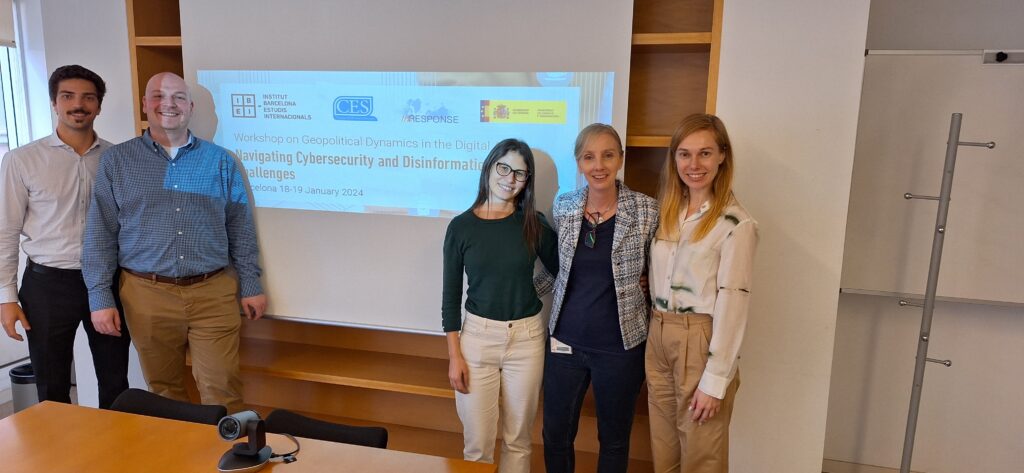
PROGRAMME
Thursday 18 January 2024
15:00 – Introduction and Keynote speech
Jacint Jordana (IBEI)
Elisabeth Johansson-Nogués (IBEI)
VIRTUAL KEYNOTE: Disinformation Order: AI, Truth and the Future of World Affairs
Juan Luis Manfredi (Universidad Castilla-La Mancha / Georgetown University).
15:45 – Panel 1: Foreign powers and strategies of hybrid interference
Chair and Discussant: Carme Colomina (CIDOB – Barcelona Centre for International Affairs).
- Foreign powers and strategies of hybrid interference — Guillem Colom-Piella (Universidad Pablo de Olavide).
- China’s digital public diplomacy regarding the Russian-Ukrainian War: forging another opinion of geopolitical conflict in Eastern Europe — Huang Zhao Alexandre (Université Paris Nanterre).
- Russia’s Hybrid Interference Campaigns in France, Germany and the UK: A Challenge against Trust in Liberal Democracies? — Eugene Kondratov (Universitat Autònoma de Barcelona).
17:15 – Coffee break
17:30 – Panel 2: Cybersecurity
Chair and Discussant: Robert Kissack (IBEI).
- Current trends and threats in cybercrime. How cybercrime organizations and states are related — Josep Pegueroles (Universitat Politècnica de Catalunya- IBEI).
- Taking back control: re-assembling the security governance of 5G telecommunication network in the Netherlands — David Snetselaar (Utrecht University).
- Hybrid threats need hybrid solutions: insights from UK offensive cyber operations — Tim Stevens (King’s College London).
Friday 19 January 2024
09:00 – Panel 3: Disinformation
Chair and Discussant: Juan Pablo Soriano Gatica (Universitat Autònoma de Barcelona-IBEI).
- Russian disinformation’s impact on Western public opinion through TV shows: The case of Italy — Matteo Pugliese (Universitat de Barcelona).
- Fabricating a war? Russian (dis) information on Ukraine — Elisabeth Johansson-Nogués (IBEI).
- Russian government’s representations of the European Union in the context of the war in Ukraine — Irina Khayrizamanova (Universitat Pompeu Fabra).
10:30 – Coffee break
11:00 – Panel 4: Institutional responses to cyberattacks and (dis)information campaigns (EU and NATO)
Chair and Discussant: Elisabeth Johansson-Nogués (IBEI).
- Digital resilience: EU’s response to hybrid threat — Elena Simanschi (IBEI-Universitat Autònoma de Barcelona).
- Disinformation and NATO: A Study in Failure — Jeffrey H. Michaels (IBEI-Institut d’Estudis Nord-americans / NATO Defence College).
12:30 – Final remarks
